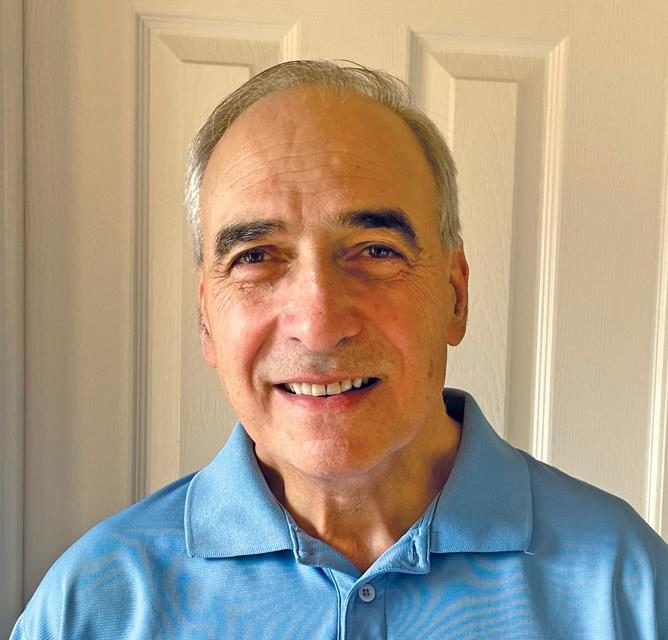“Reform advocates are starting to focus on police unions’ immense power to block the discipline of bad cops. Where have they been? Police chiefs have been fighting this lonely battle for years.”
That was how Dan Oates began a June Washington Post opinion column. Recently retired as chief in Miami Beach, Florida, Oates previously ran departments in Aurora, Colorado, and Ann Arbor, where he was chief from 2001 to 2005.
He continued:
“There cannot be true reform unless Americans elect politicians willing to take on obstructionist labor leaders. In Minneapolis, Police Chief Medaria Arradondo quickly fired the officers involved in the death of George Floyd. But very few chiefs have this ability. In my time as a chief in Michigan, Colorado and Florida, I never did, thanks to a combination of state and local laws, union contracts, and past labor precedents.”
Oates praised the vast majority of cops as “heroes who sacrifice every day to protect you, me and the next George Floyd.” But he also described his struggles to discipline officers in Florida and Colorado.
James Leonard spoke to him by phone a few days after the column appeared, and asked him about his experience in Ann Arbor.
Observer: What did you think of the Ann Arbor Police Department?
Oates: I always felt that the cops individually were great. They were capable of doing great police work. But the collective consciousness as represented by the union was horrible.
Michigan had a really, really onerous arbitration statute [for labor disputes involving police officers]. If you wanted to make a policy change that impacted “working conditions” the union could grieve you and then take it to arbitration.
“Arbitrations suck the life out of a police chief,” he wrote in the Post. “Instead of fighting crime or building community trust, you’re huddled with lawyers, practicing testimony, memorizing evidence … Too often, arbitrators feel the pressure to “split the baby” in their decisions. Perhaps the cop [the chief fired] is docked pay or demoted; otherwise, he’s back on patrol.”
That was number one. And number two, city leaders over the years had given away additional rights to the union–the most significant of which was the right of assignment. Basically, cops in Ann Arbor when I was there had a property interest in their assignment–which is absurd.
Observer: Can you give an example?
Oates: Fairly early on [I decided] that the lieutenant in charge of investigations in Ann Arbor doesn’t belong in charge of investigations. … I need to move him, but I can’t. Once you’re assigned, you have a property interest in it and you can’t be moved.
Observer: What did you do?
Oates: [He] screwed up in a major way. And I disciplined him with a suspension, and he was so angry at me that we cut a deal: he retired and I was able to replace [him. After that,] I had a very, very high performing detective unit.
It was an isolated victory. Oates says he soon realized he couldn’t significantly change the AAPD and left for Colorado.
In Aurora, he wrote in the Post, “I had 16 cops out of 650 whom I felt should be fired. Four I actually did fire. The Civil Service Commission promptly reversed me on three of them. So with the other 12 cops, I bent over backward to negotiate their departures with creative severance packages.”
Yet he told the Observer, Aurora was a far better place to be a chief than Ann Arbor: though the city had given away substantial power to the union, he says, there was no binding arbitration–and “I controlled the assignments.”
Observer: Do you have advice for Ann Arbor?
Oates: Insist that in the next contract that the right of assignment returns to the chief and just not agree to sign a contract unless that clause is removed … That requires the courage to stand up to the union, but there’s probably never been a better time for elected officials. Look what’s happened: Colorado passed a sweeping reform bill.
The city can’t change the state arbitration law, but its new police oversight commission has called on city council to renegotiate the contract to eliminate reviews within City Hall. That would give the chief final say on discipline–including firing.
In a follow-up email Oates calls that a “fantastic reform proposal.”
—
This article has been edited since it was published in the July 2020 Ann Arbor Observer. The city where Oates was most recently chief has been corrected.



Dan Oates is an arrogant tool. He stays one step ahead of being sued or exposed. The biggest problem in law enforcement is these chiefs that fail to lead and jump
Dept to Dept. Look at Oates’ resume and why he keeps leaving jobs. Blame others or the unions for you being a failure.